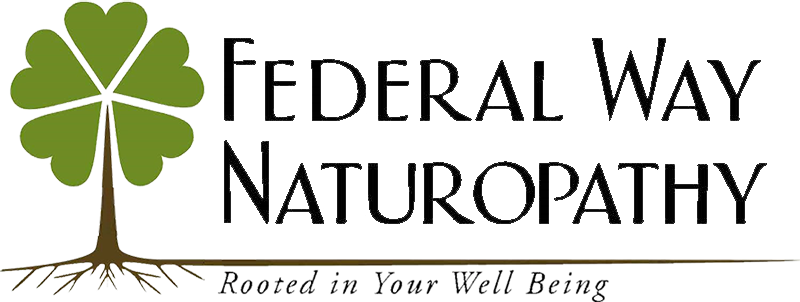As a naturopathic doctor, I’ve been treating patients for almost 20 years. That isn’t very long in the scheme of things, yet in this short time, I’ve observed many new lifestyle factors that are adversely affecting the health of my patients. Some of them are technology-related; others are just cultural and social habits. Read on to determine whether modern living is adversely affecting your health.
1. Do you sleep with electronics?
Insomnia is a huge issue among my patients. Why don’t we sleep anymore? Could it be the streetlight in front of our home that stays on all night? Or perhaps the murder show we watched before bed? Certainly not the double latté we had after lunch. While these all can affect a good night’s sleep, there is a new culprit on the list. A new question I ask my patients with insomnia is whether they sleep with their electronics. I didn’t ask this 15 years ago, because then, we’d all have thought it a ridiculous question. But now we may have our laptop, electronic reader, and cell phone all within inches of our heads.. In addition to voluntarily becoming a medical guinea pig for wifi and radiation exposure, most of us don’t need a phone at night. You grew up without a phone next to you and you made it this far. I suggest you put the phone away at night, or at least turn it, (and all the other non-alarm clock electronic devices) off.
2. If it doesn’t exist in nature, don’t put it in or on your body.
This seems simple enough, but if you’re using body care products that were not homemade or purchased from a health food store, or eating “food” out of a package with a lengthy paragraph of ingredients, you are feeding your body unnatural substances and expecting it to act naturally.
Nature has been pretty good to us, yet we constantly look for ways to improve upon it. The chemical industry has provided us with a host of artificial ingredient options in the last 15 years, but one thing remains true: few, if any, are better than natural ingredients. For example, sucralose (Splenda®), saccharine (Sweet’N Low®), and aspartame (Equal®) are rampant in our food supply. Research shows a direct correlation between the consumption of these “diet” foods and weight gain. Despite their advertising, these chemicals don’t taste better, satisfy more, or lower obesity or diabetes. Organic cane sugar is fine in moderation for most individuals. Why “improve” on it?
3. Wii does not count as an exercise regimen.
I know I’m going to get some flack on this one, but I’ve been holding it back a long time. Wii bowling with your family is great for family bonding, but it doesn’t count as credit towards cardiovascular or even functional exercise. Exercise used to be a thing we did during our daily activities of living – things like walking to school or work or the store, or milking the cows and toting the jugs. Exercise was outdoors and required more than a few minutes, some occasional heavy breathing, or technical work using our fine motor skills. This is a big reason why obesity was almost non-existent just decades ago. If your routine never involves fresh air, some unpredictable terrain (ie. stairs or a mountain trail), or some physical skill that can be developed, then you need to rethink what the human body was made for and put it to proper use.
4. Our convenience has become our pathology.
A woman visiting the U.S. for the first time from Tanzania was recently asked what she thought about her time in Seattle. She said she was amazed at how many things we have and are able to buy. She was initially impressed by how independent we are. But then she noted that we seem very sad and alone as people. When you have access to everything and can get what you want by the click of a keyboard, then you don’t need to participate in society. You don’t need to rely on others or ask a favor or even talk to your neighbor. When she makes a cake in Tanzania, it’s a village event. One neighbor has the chicken eggs, another brings sugar from the city and a third has the oven. Here, instead of the old corner store to catch up with the locals, we now are all busy behind our laptops at the coffee shop. It is a recipe for isolation. Even when humans have all the food and comforts imaginable, they still need human-to-human interaction. I don’t think she meant meeting the pizza delivery person at the door, either. Which leads me to my next modern maladaptation…
5. We need an intimate relationship with our food.
Michael Pollan’s most recent book Cooked: A natural history of Transformation, reminds us of our past nurturing relationship with food. “The rise of fast food and the decline of home cooking also have undermined the institution of the shared meal, by encouraging us to eat different things and to eat them on the run and often alone. Survey researchers tell us we’re spending more time engaged in ‘secondary eating’, as this more or less constant grazing on packaged foods is now called, and less time engaged in ‘primary eating’– a rather depressing term for the once-venerable institution known as the meal.” Research shows that, by simply spending time touching or preparing our food, our sense of satisfaction and ability to digest and absorb go up measurably. How many of you have known a child that has little interest in vegetables until they help in a garden, working the dirt and watching their seeds grow? Any child knows the best food is that with which your own hands had the privilege of working.
6. Sitting is the new smoking.
So notes Nilofer Merchant in her recent TED Talk. We now sit on average 9.3 hours per day (compared to 7.7 hours of sleep) with some significant health consequences. Sitting and inactivity have serious implications regarding back and neck pain, as well as more severe health issues. An estimated 60-80% of our adult working population experiences some level of back and neck pain, at a cost of around $86 billion a year in lost time and medical expenses. This doesn’t include the cost of more significant health complications. Regularly sitting for more than 3 hours watching TV makes you 64% more likely to die from heart disease. As soon as you sit, the enzymes needed to breakdown fat drop 90%. Each additional hour past 3 hours spent watching TV results in an 11% higher death risk over a 15 year period.
Exercising the prescribed 30 minutes a day is just not enough if you are sitting 8+ hours a day. In no other task do we assume that 30 minutes of practice outweighs 8-9 hours of poor performance. In fact, when compared, people that watched more than 3+ hours of TV are equally obese whether they exercise or not. It is the sitting that is deadly, even more than the lack of exercise. Humans are built to move. Going to the gym is not necessarily the solution. Getting up is. Getting up frequently is even better.
7. Technology is changing our sense of time and joy.
Anxiety is another condition, like insomnia, that my patients report more often now then 20 years ago. Are you able to live joyously in the present moment? Can you take a phone and computer-free vacation, or even a day to remember (or show your children) what it used to be like in the old days?
According to a recent editorial in the Huffington Post, “Over-reliance on technology–constantly checking email and social networks, and being distracted by alerts on our mobile devices–can take us out of both the past and the future, and into a state of heightened “present hedonism” in which we’re constantly focused (in a sometimes compulsive way) on what’s either right in front of us or coming immediately afterwards.
“We’re simply being in that moment to take the next action,” says Zimbardo. “It’s really minimizing the quality of life. It’s minimizing the joy that we ought to be getting from everyday life.”
8. Instead of recognizing that our physiology is changing for the worse, we label it the new norm.
If you are the rare individual that has maintained your weight for the last 30 years, you’ve probably noticed that your clothing size keeps going down when you shop. Didn’t you use to be a 10? Do they really have a size 0 now? Who decides when and how to alter clothing sizes? What if you fall off the sizing scale? You may have to move to Tanzania so the village can help you make your clothes!
The same thing has happened with lab results. Just 15 years ago it was protocol to run an HIV test on any patient with white blood cell counts below a critical level. Now half of my patients have these low level white blood cell counts. Not only are these patients not HIV+, but, according to the lab, they’re cell count is now in the “normal” range. In other words, when, as a society, our lab values change to a new common number, the lab just changes the reference range. So, while it isn’t healthy or optimal to have low white blood cells, we just change what we call “normal.” The same goes for how we view weight: collectively as a society, our weight keeps going up, so the insurance companies simply change the actuary tables to reflect what is common. As long as you don’t gain more weight than those neighbors you aren’t in relationship with, then you should be able to stay within the “normal” range.
What can you do?
Make a conscious choice not to be a lab rat.
It may sound like I am down on technology, but there are ways it has vastly improved our lives. For one, we have information at our fingertips that allows us to make educated choices. Fifty years ago, when they sprayed DDT down the streets filled with children playing to show how safe chemicals were, people had no way of knowing what they were being exposed to. Now we have Wikipedia, the Environmental Working Group, and quality stores like Marlene’s that do a lot of the research for us. You can choose to know which ingredients change your (or your child’s) hormones, which increase your risk to cancer, and which are not even researched in humans yet. So next time you are sitting with your computer look up the ingredients to the snack food you are consuming, the lotion you put on… maybe research a trip to Tanzania, then turn it off, get up and go for a walk with another computer less person just like in the old days.


